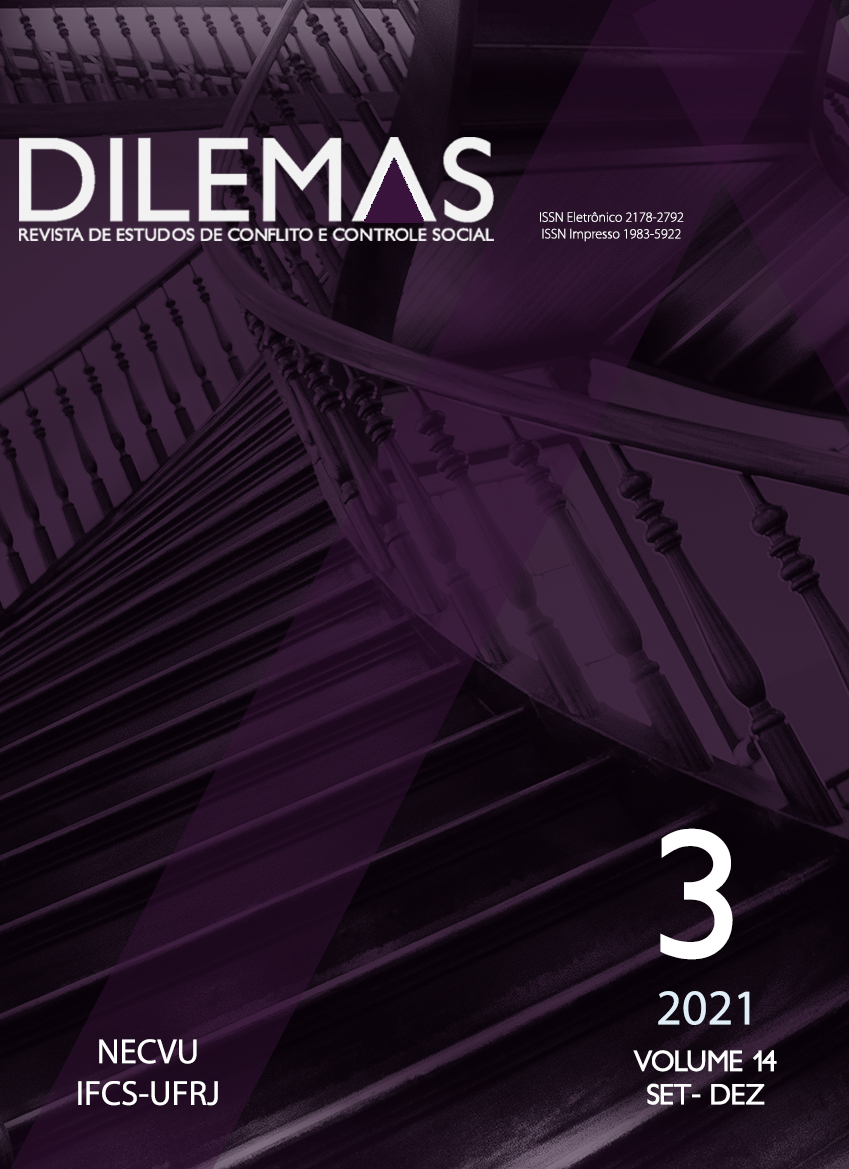Morality and Homicide among Young Killers
DOI:
https://doi.org/10.4322/dilemas.v14n3.43002Keywords:
violence, accounts, juveniles, narratives, self-presentationAbstract
Morality among juveniles convicted of homicide is approached through balance or polarity, while self-empowerment becomes central for accounts. Feelings are analyzed as a source of plausible grounds for acting, though not necessarily suited to or legitimate according to a conventional code of behavior. Fear, in a sense of despair and menace, and rage, connected to power and excitement, were recurrent. Perceptions of self-enhancement and polarity rather than balance, without belittling the victim or presenting her as disreputable, marked a trend. Punishment was often linked to deprivation of contacts with family, suggesting social relevance of relatives, particularly women, in killings and accounts. A novel approach is suggested for assessing moral claims in homicides by juveniles, addressed to alternative audiences beyond the criminal justice system.
Downloads
Published
Issue
Section
License
Upon submitting a text, the authors retain copyright and grant DILEMAS - Revista de Estudos de Conflito e Controle Social the right of first publication, with the work simultaneously licensed under the Creative Commons License type attribution BY (CC-BY), which permits sharing of the work with acknowledgment of authorship and initial publication in this journal.

